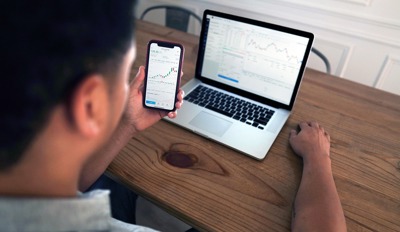
- Home_
- Knowledge_
- Dreams of empire, Russian shares, and you.
Dreams of empire, Russian shares, and you.
A tank war in Europe in 2022. Who can believe it?
Along with threatening words from Vladimir Putin about not interfering with us as we are “a strong nuclear power”, the leader of Russia looks to be following in a long tradition of tyrannical dictators like Joseph Stalin and Adolf Hitler in thinking he can manipulate the countries of Europe for his own glorification.
Despite our concern that people on both sides of this nightmare war are dying and families are suffering the dread of war and starvation in Europe once again, we should look at the likely impact on investment markets, and on our investment portfolios in particular?
First, a bit about Ukraine and its relationship with Russia. How important is Ukraine on the global stage?
- Ukraine has a population of 44 million.
- Ukrainians make up 78% of the population of Ukraine, and Russians 17%.
- The Russians of eastern Ukraine and Crimea in the South of Ukraine look to Russia for leadership and support. The rest of the country tends to look west to Europe for leadership and support.
- The capital, home to 3 million people, is called Kyiv but is also known as Kiev.
- Chernobyl, where the nuclear reactor imploded in 1986, is in Northern Ukraine. The largest nuclear power plant in Europe is in Southern Ukraine.
- Ukraine is rich in natural resources. It has been known as “the breadbasket of Russia” for ages. Agricultural land accounts for 70% of the country. It has some of the richest soil in the world exporting huge amounts of sugar beet. It is the world’s fifth largest exporter of wheat and the world’s largest exporter of sunflower seed oil and canola oil (rapeseed). It is one of the world’s largest producers of corn.
- Ukraine has the world’s largest deposits of iron ore (one fifth of the world’s total). It has the second to highest reserves of gas in Europe after Russia. They have huge amounts of coal. Chemical manufacturing and heavy industrial manufacturing are also very important sectors.
- Although not a member of NATO, Ukraine is the USA’s fourth largest recipient of miliary funding.
- Ukraine is connected to the same power grid as Russia and shares economic links with Russia. However, China and Poland have surpassed Russia as Ukraine’s largest trading partners in recent years.
- Most of the gas that Russia exports to Europe passes through Ukraine.
- Russia has been helping conduct a civil war backing Russian speaking rebels in Donbas and Luhansk regions of Ukraine since 2014. 14,000 people have died in the battles since then. Russia talks about the genocide of Russian-speaking people in Ukraine without any evidence. The Western leaning President of Ukraine, Volodymyr Zelenskyy, is from the East of Ukraine and is a Russian speaker himself.
- Russia has recently recognised the sovereignty of the rebel areas of eastern Ukraine, moved troops into the regions, and invaded wider parts of Ukraine. The word on the street is that Russia will undertake regime change putting a puppet government in control of Ukraine that will be loyal to Russia, as their neighbour to the North, Belarus is. Putin has talked about re-establishing the ‘empire’ that Russia had under the USSR. Scary stuff.
Market reactions
The Russian share market has lost around 33% of its value at the time of writing. Other share markets are down as well but they have been under pressure for some time due to rising interest rates and inflation.
It is too early to measure just what the exact impact will be on our portfolios as it takes several days to get all the information in from the 50 or so currencies we invest in.
Our standard portfolios typically have 0.3% of the portfolio invested in Russian shares (3 or 4 companies) and none in Ukraine. In the Socially Responsible portfolios the rate is even less at 0.1% of the portfolio.
Geographic spread of one of our typical portfolios:

War such as we are seeing creates uncertainty for all markets and we will see increasing volatility around the world as a result.
With all the sadness and talk of war, investors will naturally be nervous. Historically, foreign wars have little sustained impact on share markets or economic growth. A study of the American share market since 1990 found that it fell on average 2% during 16 major geopolitical events, including the Gulf War, Iraq War and 9/11. Over the subsequent six months the market rose nearly 90% of the time with average gains of nearly 8%.
A longer study going back to WW2 showed shares had fully recovered losses of an average 5% within 10 weeks.
My thoughts are that the aftermath of this war is potentially more damaging to the world economy due to the economic sanctions being levied, but this is purely speculative. We just don’t know what the overall impact will be.
Added to the mix is the current concern with inflation and rising interest rates; it will be hard to separate out the various causes of any market movement. Since the recent high on 4 January 2022, portfolios are typically down between 5% for lower risk portfolios and 8% for a higher allocation to shares. A slight rally in bonds over the past two days has helped the lower risk profile portfolios.
What do we know?
We do know a couple of things that are very powerful in this situation –
- To come out on top, to build wealth over the long term, you must stick to your plan. Long-term money needs to stay invested to participate in the market recovery, and of this there is absolutely no doubt; there will be a recovery, but you can’t time it. To get the recovery you must stay invested.
- This is a great time to invest new money if you are lucky enough to have some cash or bonds. There is a fire sale on and the shares you bought two months ago are now cheaper. One way of doing this is to increase your allocation to shares by selling some of your bonds and buying shares. Effectively you are increasing your risk profile but that can be a good thing, especially since those bonds you hold have returned negative returns for the past year and are likely to continue doing so while interest rates continue their well-publicised rise. Another way to take advantage of this effect is to keep saving every month into your aggressive KiwiSaver Scheme. Your current savings are buying cheaper investments and you should be rubbing your hands together in joy at the prospect.
It is also important to have some liquid cash if you have stopped working and are relying on your investments to fund your day-to-day living. Although this it is not the time to sell long-term investments to fund your cash needs. If you need cash for any reason, this should already be set aside as part of a prudent financial plan.
Oh, and of course, you must be properly diversified. Don’t settle for anything less.
Our thoughts are with the people of Ukraine and those killed and maimed on both sides as despots try to re-write history.
Keep asking great questions…
P.S. This article does not constitute personal financial advice. As with all things financial, get some good personal financial planning advice before taking action. Everyone has a different set of circumstances
related articles.




